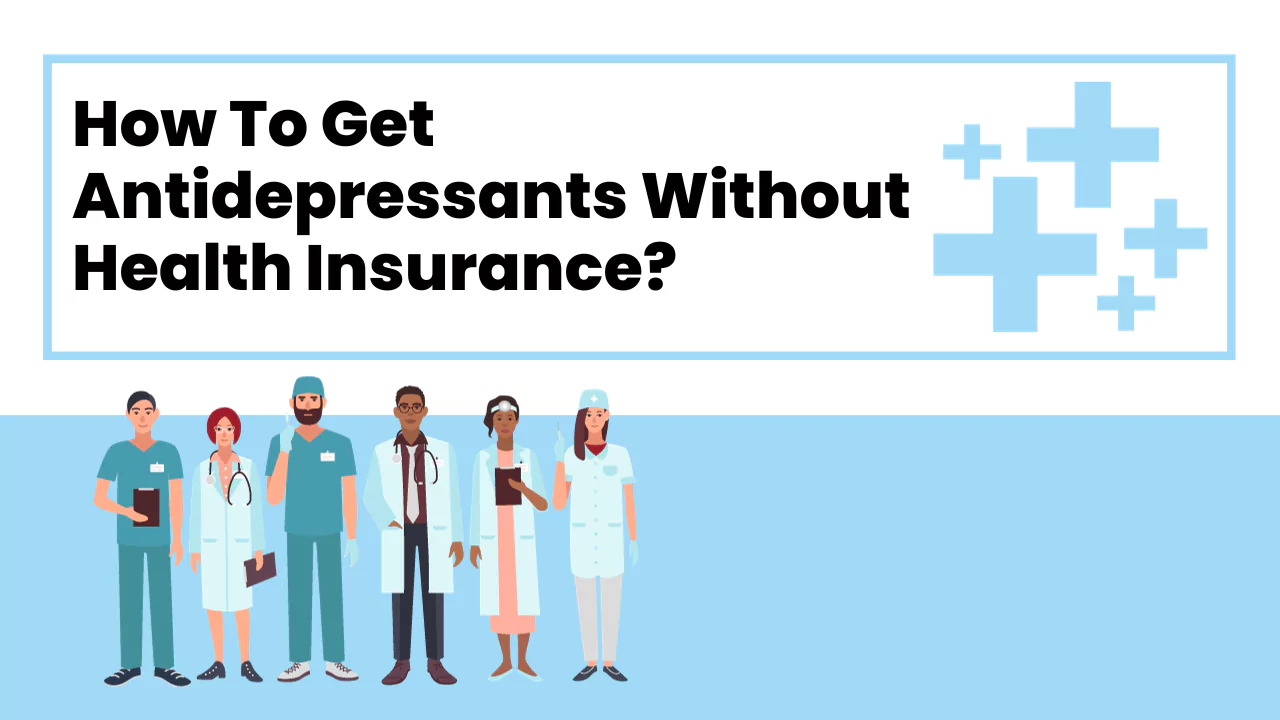Antidepressants are medications that can help treat depression and other mental health conditions, such as anxiety, obsessive-compulsive disorder, and post-traumatic stress disorder. However, antidepressants can be expensive, especially if you do not have health insurance or your insurance does not cover them. In this article, we will explore some options for accessing antidepressants without health insurance, as well as some alternative resources for mental health support.
The Cost of Antidepressants Without Health Insurance
The cost of antidepressants without health insurance varies widely depending on the type, dose, and brand of the medication. According to one source, the average cost of generic antidepressants is $62.50 for 30 tablets, while the average cost of brand-name antidepressants is $487.75. Some generic antidepressants can cost as little as $4 per month, while some brand-name antidepressants can cost up to $350 per month. You may be able to save money by taking a generic version of a brand-name medication or by applying for a patient assistance program (PAP).
Options for Accessing Antidepressants Without Health Insurance
If you do not have health insurance or your insurance does not cover antidepressants, you may still have some options for accessing these medications. Here are some possible ways to get antidepressants without health insurance:
- Accessing through generic versions: Generic medications contain the same active ingredients as brand-name medications but are usually cheaper. You can ask your doctor to prescribe you a generic version of your antidepressant or switch to a different generic medication that works similarly. You can also compare prices of different pharmacies and online platforms that sell generic medications.
- Patient assistance programs: Many pharmaceutical companies offer PAPs that provide free or low-cost medications to people who qualify based on their income, diagnosis, and lack of insurance. You can contact the manufacturer of your antidepressant or visit their website to see if they have a PAP and how to apply. You can also use online tools such as NeedyMeds or RxAssist to search for PAPs by medication name or condition.
- Sliding scale fees: Some mental health providers, such as psychiatrists, psychologists, or nurse practitioners, may offer sliding scale fees based on your income and ability to pay. This means that you pay a lower fee than their standard rate for your medication and/or therapy sessions. You can ask your provider if they have a sliding scale fee or look for providers who advertise this option on their websites or directories.
Alternative Resources for Mental Health Support
While antidepressants can be helpful for many people with mental health conditions, they are not the only option for treatment and support. There are also other resources that you can access without health insurance or at a low cost, such as:
Community Health Clinics
Community health clinics are facilities that provide primary care and mental health services to people who are uninsured or underinsured. They may offer sliding scale fees, free services, or accept Medicaid or Medicare. You can find a community health clinic near you by using the Health Resources and Services Administration tool or by calling 877-464-4772.
Online Therapy Options
Online therapy is a form of counseling that takes place through phone calls, video chats, emails, or text messages. Online therapy can be convenient, affordable, and effective for many people with mental health conditions. There are many online platforms that offer online therapy services, such as BetterHelp, Talkspace, or Amwell. You can compare prices, features, and reviews of different online therapy platforms and choose the one that suits your needs and budget.
Support Groups
Support groups are gatherings of people who share similar experiences and challenges with mental health conditions. Support groups can provide emotional support, coping skills, information, and peer feedback. You can find support groups in your area by contacting local mental health organizations, such as NAMI or DBSA, or by searching online directories, such as Psychology Today or Mental Health America. You can also join online support groups that meet through chat rooms, forums, or social media platforms.
Non-profit organizations
Non-profit organizations are groups that work to promote mental health awareness, education, advocacy, and research. Some non-profit organizations also provide direct services, such as crisis hotlines, referrals, grants, scholarships, or programs for specific populations or issues. You can support these organizations by donating money or time or by using their resources. Some examples of non-profit organizations for mental health are The Loveland Foundation, To Write Love on Her Arms, and The Brain and Behavior Research Foundation.





